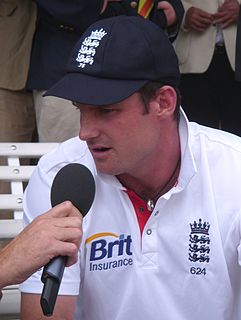A Quote by James M Strock
Curiously, for all the outpourings of scholarship on Theodore Roosevelt, no one had written a book focused directly on his leadership approach, working in large part from his own letters and other writings. That opportunity was open, and I was privileged to step in.
Related Quotes
Theodore Roosevelt regarded leadership as his one gift, the area in which he might be considered to possess genius. He presented his views on leadership throughout his voluminous writings. He intended for future writers to study them with an eye toward action, as he himself had done of historic figures.
What a wee little part of a person's life are his acts and his words! His real life is led in his head, and is known to none but himself. All day long, the mill of his brain is grinding, and his thoughts, not those of other things, are his history. These are his life, and they are not written. Everyday would make a whole book of 80,000 words -- 365 books a year. Biographies are but the clothes and buttons of the man -- the biography of the man himself cannot be written.
It's interesting to me that really one of the first things she [Eleanor Roosevelt]did as First Lady was to collect her father's letters and publish a book called The Letters of My Father, essentially, hunting big game, The Letters of Elliott Roosevelt. And it really was an act of redemption, really one of her first acts of redemption as she entered the White House. She was going to redeem her father's honor. And publishing his letters, reconnecting with her childhood really fortified her to go on into the difficult White House years.
I often ask myself: "What would Theodore Roosevelt do?" One can never know, of course. The ultimate contribution of consequential leaders is often their capacity to reframe issues in novel ways. That said, his leadership engaged, at a foundational level, whether the American "national character" would accept decline and mediocrity, or would go all-in for leadership and excellence. Amid the myriad of otherwise disconnected issues before us, that choice is emerging yet again.

























